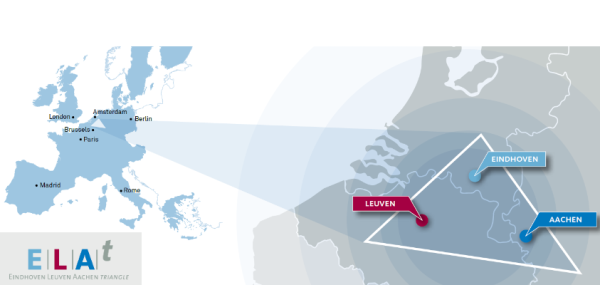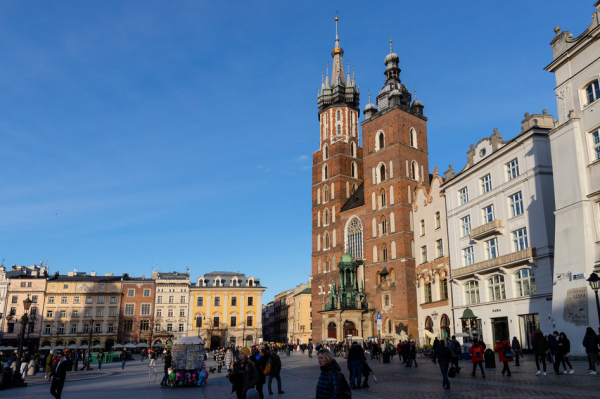Examples of Successful Regional Innovation Ecosystems

There are many examples of successful regional innovation ecosystems around the world. In this post, we focus on less-known examples from Eastern Europe.
Before we get to it, let's mention some of the most famous global models that are often used as benchmarks. In most cases, these include metropolitan areas around major cities in well-developed countries.
Globally famous innovation ecosystems
Silicon Valley doesn't require a special introduction. This region, located in the San Francisco Bay Area, is known for its high concentration of tech companies and startups, including Apple, Google, and Facebook. It has probably the strongest ecosystem of investors, incubators, accelerators, and other support systems that help new businesses thrive. Silicon Valley is also home to a number of top universities, including Stanford University, which collaborates with local businesses and startups on research and development projects.
Shenzhen Innovation Ecosystem is among the most dynamic regions in recent years. Located in China, it is home to a number of top tech companies and a thriving startup scene helping new businesses get off the ground and scale quickly.
Boston-Cambridge Innovation Corridor and Toronto-Waterloo Innovation Corridor are home to a number of top universities (MIT & Harvard in the east of the U.S. and the University of Toronto and the University of Waterloo in Ontario, Canada). The first has a strong life sciences industry behind it, while the second is a growing tech sector hub in Canada.
Finally, there's Tel Aviv Innovation Ecosystem located in Israel known for its strong tech sector and innovative startups.
Intercountry regional innovation ecosystems
An example of several countries creating a single regional innovation ecosystem is the Eindhoven-Leuven-Aachen triangle (ELAt).
ELAt is a cross-border region that encompasses the tech-driven cities of Eindhoven in the Netherlands, Leuven in Belgium, and Aachen in Germany.
With a population of over 8 million people scattered around 19.640 km², the purpose of ELAt is to capture the full innovation potential of its resources.
Its focus is on building on similarities and complementarities in high-tech specialisations and securing a key position within a global network of innovation regions.

As a result of long-standing cooperation between these regions that started back in the 1970ies, ELAT was formally established in 2004. The second phase started in 2009 when ELAt evolved in the Top Technology Region - Eindhoven-Leuven-Aachen triangle (TTR-ELAt).
TTR-ELAt is an innovation-driven functional cross-border region that looks beyond the next 30 years.
The region is home to four major universities and their Technology Transfer Offices (Antwerp, Hasselt, Leuven and Eindhoven) and one innovation agency (Innotek).
It also has a strong sense of community and opportunities for collaboration and networking, which have helped to foster a spirit of innovation and cooperation.
Eastern Europe's examples of successful regional innovation ecosystems
While the above examples are inspiring, they often do more damage to the Western Balkans' innovation scene than good.
Our region is well behind those advanced ecosystems making it difficult to relate to their achievements. We are more likely to benefit from learning from successful examples in Eastern Europe.
Budapest Innovation Ecosystem
Budapest is home to a thriving innovation ecosystem that has earned it a reputation as a leading tech hub in Central and Eastern Europe. The city boasts a highly educated and skilled workforce, with a strong foundation in science and technology. This, combined with a supportive business environment and a rich startup culture, has attracted top tech companies and startups from around the world.

One of the key drivers of Budapest's innovation ecosystem is the city's world-class universities, which produce a steady stream of talented graduates. These institutions also collaborate with local businesses and startups on research and development projects, fostering a spirit of innovation and collaboration.
In addition to its universities, Budapest is home to numerous coworking spaces, incubators, and accelerators, which provide resources and support for startups and entrepreneurs. The city also hosts a number of events and conferences that bring together the local tech community and provide networking opportunities.
Krakow Technology Park (KTP)
Located in Poland, KTP it is home to a number of major Polish universities and a growing tech sector.
KTP offers a range of services for startups, including co-working spaces, business development support, and access to funding and investment opportunities.

In addition to supporting new businesses, KTP also encourages collaboration and partnerships between startups, established companies, and research institutions.
It fosters a vibrant and dynamic innovation ecosystem in the Krakow region and is helping to drive its economic growth.
Tallinn Innovation Ecosystem
One of the key drivers of Tallinn's success is the city's competitive workforce. The city is home to the Tallinn University of Technology and the Estonian Academy of Arts, which produce experts in science, technology, engineering, and math.
These institutions also collaborate with local businesses and startups on research and development projects, fostering a spirit of innovation and collaboration.
In addition to its universities, Tallinn has a supportive business environment that is conducive to entrepreneurship.
The Estonian and local governments offer a range of programs and initiatives designed to support startups, including grants, tax incentives, and business development resources.

The city is also home to a number of co-working spaces, incubators, and accelerators that provide resources and support for entrepreneurs and startups.
Conclusion
There are many inspiring examples of successful regional innovation ecosystems around the globe. While some are city-based, others connect different regions within countries.
From the Western Balkans' perspective, we can learn from regional innovation ecosystems such as ELAt that play a crucial role in driving economic growth, job creation, and technological advancement.
These ecosystems provide a supportive and collaborative environment for startups and established companies to incubate and scale new ideas, fostering a culture of innovation and entrepreneurship.
Businesses and research organisations from the Western Balkans could emulate some of ELAt's lessons learned to create a dynamic and vibrant environment that drives progress and advancement.
